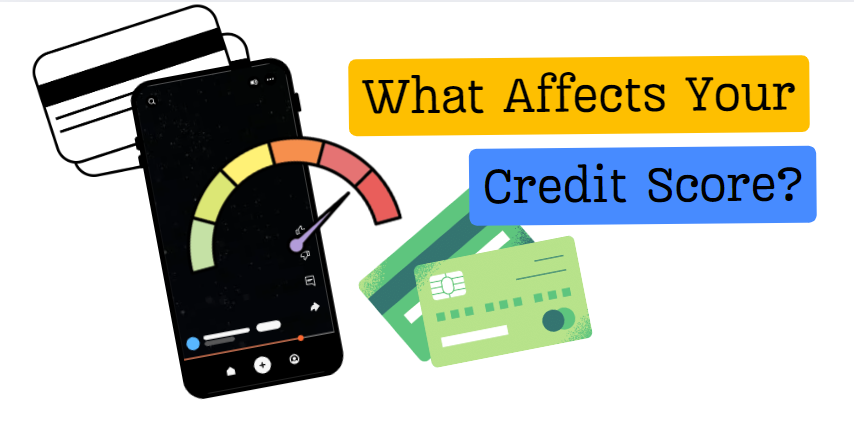Credit card holders may want to maintain their credit score as a lower score can lead to many lost opportunities. To do this, you must know what lowers your credit score, so that you may avoid it.
The factors listed below answer the question, “What Lowers Your Credit Score?”
1. Missed or delayed payments
The credit score can be seriously harmed by missing loan, credit card, or utility bill payment deadlines. Because it shows your dependability, credit bureaus give your ability to make timely repayments a lot of weight.
Your credit report may be impacted for up to seven years by even one late payment that is more than thirty days past due. The table below shows the impact of delay on credit score.
| Days Late | Credit Score Impact | Effect |
| 0–29 | No impact (grace period) | Not reported to credit bureaus |
| 30–59 | Moderate to high impact | The score may drop by 60–110 points |
| 60–89 | Severe impact | Triggers penalty APR and collections |
| 90+ | Critical | Defaults, legal action possible |
2. High Ratio of Credit Utilization
The percentage of your available credit that you are currently using is known as your credit utilization ratio. It is computed by taking your total credit limit and dividing it by the total amount of your outstanding balances. A high ratio raises concerns for lenders because it implies a strong reliance on credit.
Experts advise keeping your credit utilization below 30% to avoid a lowering of your credit score.
Example:
- ₹2,00,000 is the credit limit
- ₹1,00,000 was used.
- 50% utilization is too high, which lowers the score.
Thus, it shows that a high balance recorded at the time of credit score calculation can lower your score, even if you pay off balances in full later.
3. Too Many Hard Inquiries
The lender conducts a hard inquiry into your credit report each time you apply for a new loan or credit card. A single inquiry might only marginally lower your score, but several inquiries in a short amount of time could raise questions about your financial stability.
When you apply for several credit products at once, it can give the impression that you’re in dire need of money.
Here is a table to help you understand the difference between hard and soft inquiry.
| Type of Inquiry | Impact on Credit Score | Example |
| Soft Inquiry | No impact | Employer checks, frequent checking of the credit score |
| Hard Inquiry | Lowers 5–10 points | Applying for credit cards or loans |
4. Not making payments on credit cards or loans
When you default on a loan or credit card, it indicates that you haven’t made any payments for a long time, usually 90 days or longer. It can severely impact the credit score.
In addition to that, defaults make potential lenders reluctant to accept your applications and reduce your chance of getting credit.
Real-World Repercussions:
- You might be subject to asset seizures or legal notices
- Your credit report will show a collection account.
- The default significantly reduces credit options, and the impact does not last for just a few years but seven years straight.
5. Terminating Previous Credit Accounts
It may surprise you to learn that closing an old or unused credit card lowers rather than raises your credit score.
There are two main reasons:
- Your utilization ratio rises as a result of the reduction in your total available credit.
- Your average credit age, a measure of stability, is shortened.
As an illustration, let’s say you have two credit cards, each with a ₹70,000 limit. Your available credit drops from ₹1,40,000 to ₹70,000 when you close one. Your utilization increases from 20% to 40% if you’re spending ₹28,000, which could potentially kill your score.
6. Having a Minimal Credit History
Not only defaults, but having a few accounts or a brief record in your credit history also affects your credit score. The creditworthiness can be questioned if there is less credit history that speaks in your favor.
This is typical of:
- Young adults who are just beginning to establish credit
- Those who refrain from using credit
- New arrivals without a local credit history
Consequences:
- You might find it difficult to get approved for premium cards or loans.
- Even if you manage your finances well, you may still receive higher interest rates.
Bottomline
The conclusion can be drawn that the credit score is a representation of your financial responsibility and behaviour, not just a number. A healthy credit score equals a good credit report, which ultimately has many benefits. Avoid the listed factors to maintain that score.
Your future self will appreciate you if you develop wise credit practices now.
Written by: Tanya Kumari


